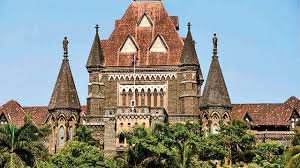.png)
Gujarat ATS arrests three suspects including Pakistani handlers, seizes weapons and castor oil
Ricin poison attack tip-off foiled; Gujarat ATS arrests three suspects including Pakistani handlers, seizes weapons and castor oil
Ahmedabad, November 10, 2025 (Special Correspondent): Gujarat's Anti-Terrorist Squad (ATS) has succeeded in averting a major threat to the security of the country. The alertness of the state's criminal intelligence agency has led to the arrest of three suspects linked to the terrorist organization Islamic State Khorasan Province (ISKP), which has revealed that they were planning a horrific chemical attack on major cities of Ahmedabad, Delhi and Lucknow. The plan was to use a deadly poison called ricin, which would have put hundreds of lives at risk. Weapons and castor oil materials have been seized from the arrested suspects, and the investigation has revealed that Pakistani handlers and new recruits played a major role in this conspiracy.
According to Gujarat ATS officials, the operation was carried out late Saturday night at a secret location outside Ahmedabad. The three suspects - Ajmal Khan (28), Farooq Ahmed (32) and Rashid Ibrahim (26) - were working on the direct instructions of the top leaders of ISKP in Pakistan. According to the evidence available to them, the terrorists were using castor oil seeds to prepare the ricin poison. Ricin is a highly lethal protein poison, which can be absorbed through inhalation or skin contact and takes 4 to 8 hours to show its symptoms. Once it enters the body, it causes death by damaging the lungs and heart. It has been reported to be used by terrorist organizations around the world for attacks.
ATS sources said that the plan was being hatched for the last three months. The suspects wanted to attack a busy market in Ahmedabad, the India Gate area in Delhi and the Hazratganj area in Lucknow using ricin-infused sprays or bombs. The attack was likely to cause heavy casualties among the civilian population. The attack was planned to take advantage of the festive atmosphere in Ahmedabad during the Diwali festival. "It was a very dangerous conspiracy. We intervened on the basis of intelligence inputs, otherwise the consequences would have been dire," senior Gujarat ATS officer Praveen Sinha told a press conference.
Going by the list of items seized from the arrestees, two country-made pistols, an AK-47-like automatic weapon, lab equipment for chemical mixing, 50 kg of castor oil seeds and ISKP propaganda materials were recovered from the suspects. Besides, evidence of communication with ISKP commanders in Pakistan was found in their mobile phones and laptops. Investigation revealed that the suspects were originally from Uttar Pradesh and Bihar, but were recruited through ISKP's online propaganda and were hiding in Gujarat. Pakistani handlers had provided them with financial support and technical guidance, including instructions to prepare ricin poison.
The ISKP is an Islamic State affiliate active in the Khorasan region on the border of Afghanistan and Pakistan. The group, which was formed in 2015, has carried out several attacks in India, including a series of terrorist attacks in Kashmir in 2022 and online recruitment drives. Indian intelligence agencies have considered ISKP to be a major threat to the country, especially for its chemical and biological attack capabilities. The arrests have dealt a major blow to ISKP's network in India, and the national security apparatus has now become more alert.
The suspects arrested in the case were produced before an Ahmedabad court today and have been remanded in 14-day custody for further questioning. More names are likely to surface in a joint investigation by the Gujarat Police and the Central Intelligence Agency (IB). The central government, while congratulating the Gujarat ATS on this success, has directed it to take strict action against the terror network across the country.
The incident has created a climate of fear among the general public, but the vigilance of the police has averted a major crisis. According to experts, the threat of chemical attacks will require India to implement new security measures, which will include more CCTV cameras and biological sensors in public places. The investigation into this matter is ongoing, and more updates will be provided as further information becomes available.
Ricin poison attack tip-off foiled; Gujarat ATS arrests three suspects including Pakistani handlers, seizes weapons and castor oil
Ahmedabad, November 10, 2025 (Special Correspondent): Gujarat's Anti-Terrorist Squad (ATS) has succeeded in averting a major threat to the security of the country. The alertness of the state's criminal intelligence agency has led to the arrest of three suspects linked to the terrorist organization Islamic State Khorasan Province (ISKP), which has revealed that they were planning a horrific chemical attack on major cities of Ahmedabad, Delhi and Lucknow. The plan was to use a deadly poison called ricin, which would have put hundreds of lives at risk. Weapons and castor oil materials have been seized from the arrested suspects, and the investigation has revealed that Pakistani handlers and new recruits played a major role in this conspiracy.
According to Gujarat ATS officials, the operation was carried out late Saturday night at a secret location outside Ahmedabad. The three suspects - Ajmal Khan (28), Farooq Ahmed (32) and Rashid Ibrahim (26) - were working on the direct instructions of the top leaders of ISKP in Pakistan. According to the evidence available to them, the terrorists were using castor oil seeds to prepare the ricin poison. Ricin is a highly lethal protein poison, which can be absorbed through inhalation or skin contact and takes 4 to 8 hours to show its symptoms. Once it enters the body, it causes death by damaging the lungs and heart. It has been reported to be used by terrorist organizations around the world for attacks.
ATS sources said that the plan was being hatched for the last three months. The suspects wanted to attack a busy market in Ahmedabad, the India Gate area in Delhi and the Hazratganj area in Lucknow using ricin-infused sprays or bombs. The attack was likely to cause heavy casualties among the civilian population. The attack was planned to take advantage of the festive atmosphere in Ahmedabad during the Diwali festival. "It was a very dangerous conspiracy. We intervened on the basis of intelligence inputs, otherwise the consequences would have been dire," senior Gujarat ATS officer Praveen Sinha told a press conference.
Going by the list of items seized from the arrestees, two country-made pistols, an AK-47-like automatic weapon, lab equipment for chemical mixing, 50 kg of castor oil seeds and ISKP propaganda materials were recovered from the suspects. Besides, evidence of communication with ISKP commanders in Pakistan was found in their mobile phones and laptops. Investigation revealed that the suspects were originally from Uttar Pradesh and Bihar, but were recruited through ISKP's online propaganda and were hiding in Gujarat. Pakistani handlers had provided them with financial support and technical guidance, including instructions to prepare ricin poison.
The ISKP is an Islamic State affiliate active in the Khorasan region on the border of Afghanistan and Pakistan. The group, which was formed in 2015, has carried out several attacks in India, including a series of terrorist attacks in Kashmir in 2022 and online recruitment drives. Indian intelligence agencies have considered ISKP to be a major threat to the country, especially for its chemical and biological attack capabilities. The arrests have dealt a major blow to ISKP's network in India, and the national security apparatus has now become more alert.
The suspects arrested in the case were produced before an Ahmedabad court today and have been remanded in 14-day custody for further questioning. More names are likely to surface in a joint investigation by the Gujarat Police and the Central Intelligence Agency (IB). The central government, while congratulating the Gujarat ATS on this success, has directed it to take strict action against the terror network across the country.
The incident has created a climate of fear among the general public, but the vigilance of the police has averted a major crisis. According to experts, the threat of chemical attacks will require India to implement new security measures, which will include more CCTV cameras and biological sensors in public places. The investigation into this matter is ongoing, and more updates will be provided as further information becomes available.
Ahmedabad, November 10, 2025 (Special Correspondent): Gujarat's Anti-Terrorist Squad (ATS) has succeeded in averting a major threat to the security of the country. The alertness of the state's criminal intelligence agency has led to the arrest of three suspects linked to the terrorist organization Islamic State Khorasan Province (ISKP), which has revealed that they were planning a horrific chemical attack on major cities of Ahmedabad, Delhi and Lucknow. The plan was to use a deadly poison called ricin, which would have put hundreds of lives at risk. Weapons and castor oil materials have been seized from the arrested suspects, and the investigation has revealed that Pakistani handlers and new recruits played a major role in this conspiracy.
According to Gujarat ATS officials, the operation was carried out late Saturday night at a secret location outside Ahmedabad. The three suspects - Ajmal Khan (28), Farooq Ahmed (32) and Rashid Ibrahim (26) - were working on the direct instructions of the top leaders of ISKP in Pakistan. According to the evidence available to them, the terrorists were using castor oil seeds to prepare the ricin poison. Ricin is a highly lethal protein poison, which can be absorbed through inhalation or skin contact and takes 4 to 8 hours to show its symptoms. Once it enters the body, it causes death by damaging the lungs and heart. It has been reported to be used by terrorist organizations around the world for attacks.
ATS sources said that the plan was being hatched for the last three months. The suspects wanted to attack a busy market in Ahmedabad, the India Gate area in Delhi and the Hazratganj area in Lucknow using ricin-infused sprays or bombs. The attack was likely to cause heavy casualties among the civilian population. The attack was planned to take advantage of the festive atmosphere in Ahmedabad during the Diwali festival. "It was a very dangerous conspiracy. We intervened on the basis of intelligence inputs, otherwise the consequences would have been dire," senior Gujarat ATS officer Praveen Sinha told a press conference.
Going by the list of items seized from the arrestees, two country-made pistols, an AK-47-like automatic weapon, lab equipment for chemical mixing, 50 kg of castor oil seeds and ISKP propaganda materials were recovered from the suspects. Besides, evidence of communication with ISKP commanders in Pakistan was found in their mobile phones and laptops. Investigation revealed that the suspects were originally from Uttar Pradesh and Bihar, but were recruited through ISKP's online propaganda and were hiding in Gujarat. Pakistani handlers had provided them with financial support and technical guidance, including instructions to prepare ricin poison.
The ISKP is an Islamic State affiliate active in the Khorasan region on the border of Afghanistan and Pakistan. The group, which was formed in 2015, has carried out several attacks in India, including a series of terrorist attacks in Kashmir in 2022 and online recruitment drives. Indian intelligence agencies have considered ISKP to be a major threat to the country, especially for its chemical and biological attack capabilities. The arrests have dealt a major blow to ISKP's network in India, and the national security apparatus has now become more alert.
The suspects arrested in the case were produced before an Ahmedabad court today and have been remanded in 14-day custody for further questioning. More names are likely to surface in a joint investigation by the Gujarat Police and the Central Intelligence Agency (IB). The central government, while congratulating the Gujarat ATS on this success, has directed it to take strict action against the terror network across the country.
The incident has created a climate of fear among the general public, but the vigilance of the police has averted a major crisis. According to experts, the threat of chemical attacks will require India to implement new security measures, which will include more CCTV cameras and biological sensors in public places. The investigation into this matter is ongoing, and more updates will be provided as further information becomes available.

.jpg)
















